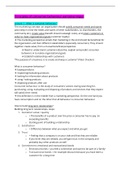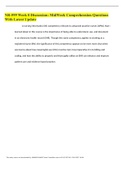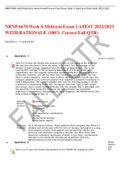College aantekeningen
College aantekeningen Principles Of Consumer Behaviour (MAN-BKV64-2021-3V) Consumer Behavior, Global Edition, ISBN: 9781292269245
- Instelling
- Radboud Universiteit Nijmegen (RU)
College aantekeningen van het vak Principles of Consumer Behaviour. De aantekeningen zijn in het Engels en van de colleges die in dit jaar van tevoren zijn opgenomen. Ook de artikelen staan in de aantekeningen. Door middel van deze aantekeningen heb ik zelf een 9,1 gehaald voor het tentamen
[Meer zien]







